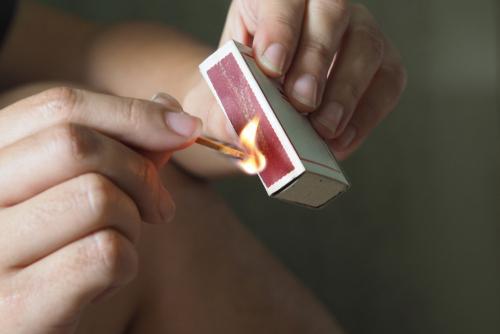What Are the Criminal Penalties for Arson in Texas?

Many people have memories of sitting around a campfire with family or friends, roasting marshmallows on a summer or fall evening. Large bonfires can also be a way to dispose of leaves or unwanted trash. Accidental fires can start for many reasons, sometimes in the forest and, in other cases, at a home or building. For some individuals, however, fire can also abet illegal activity. Fires that are started intentionally may fall under the criminal act of arson. If a person is charged with this violent crime, having an experienced criminal defense attorney’s help is crucial, since the penalties for arson in Texas are significant. Understanding what acts constitute arson is important to avoid accidentally committing the crime or to comprehend possible criminal charges and their consequences.
The Act of Arson Explained
Under Texas law, the act of arson is committed if an individual starts a fire or causes an explosion with the intent to destroy another person’s property. Not only does the arsonist damage another individual’s property, but he or she can also potentially cause severe or fatal injuries to anyone on that property. These will only lead to additional charges and harsher punishments. The act of arson extends past just setting someone’s house on fire. Charges can result from starting fires that are intended to damage or destroy vegetation, fences, or structures on open land. More commonly known, setting fires to homes, vehicles, or buildings may also be considered arson.
In addition, fires that are started recklessly are classified as arson. This is a common occurrence with people who are manufacturing controlled substances. If a fire is started in the process and damages property, the individuals responsible can face arson charges. The fires do not necessarily have to cause significant damage to property or continue burning after they are ignited to be deemed arson. Intent is the necessary component in arson cases.
What Charges Will I Face For Arson?
Arson is taken very seriously in Texas, especially since arsonists risk hurting others in the process. Most cases are considered a Second Degree Felony, which can result in two to 20 years in prison and $10,000 in fines. However, there are situations that warrant different charges. Any act of arson that causes bodily injury or death of a person or which is intended to destroy a habitation or place of assembly or worship is classified as a First Degree Felony. This warrants five to 99 years in prison or life imprisonment in addition to a maximum $10,000 fine.
People who recklessly start a fire while manufacturing a controlled substance and cause injury or death in the process commit a Third Degree Felony. This can result in two to 10 years in prison and a $10,000 fine. However, those who do the same action and damage property rather than injure an individual commit a lower offense known as a State Jail Felony. The penalties for this charge include 180 days to two years in prison and up to $10,000 in fines.
Contact a Plano Arson Defense Lawyer
Any charge involving arson carries serious penalties in Texas. Whether you committed the crime purposely or accidentally, or if you did not commit the crime at all, you have the right to legal representation. Penalties for this conviction are based solely on the crime’s circumstances, and our skilled attorneys know how to use the details of your case to build a strong defense. At The Crowder Law Firm, P.C., our attorneys have 20 years of experience practicing law, and we know how to handle even the most complex criminal cases. If you are facing charges of arson, contact our Tarrant County criminal defense attorney at 214-544-0061 for a free consultation.
Sources:
https://texaspolitics.utexas.edu/archive/html/just/features/0201_01/crimeandp.html
https://statutes.capitol.texas.gov/Docs/PE/htm/PE.28.htm

















